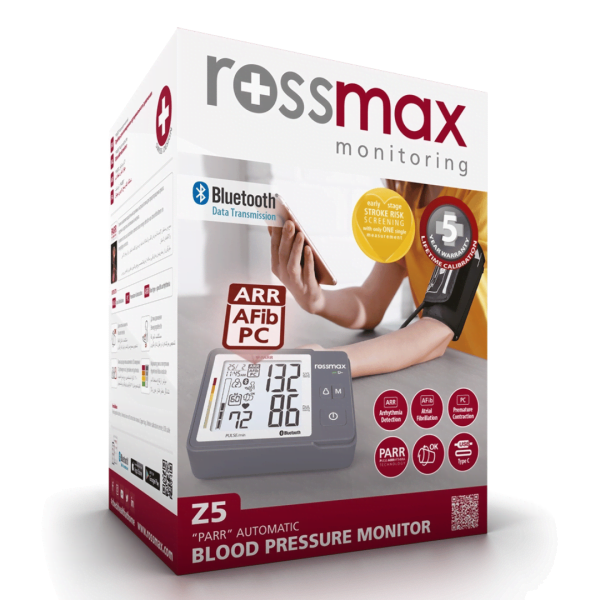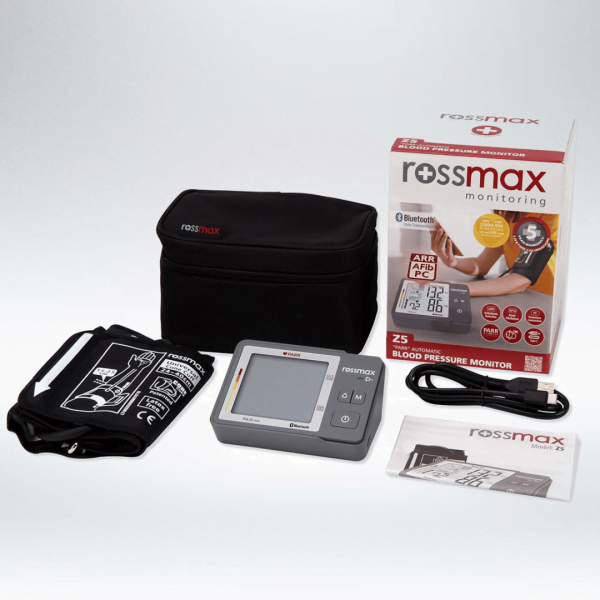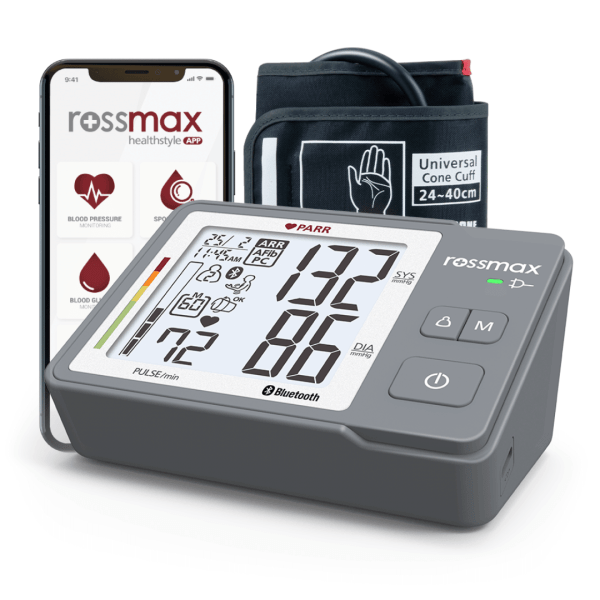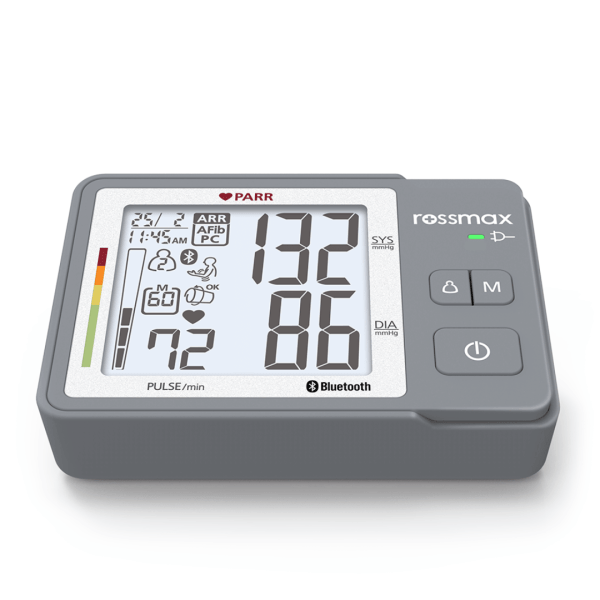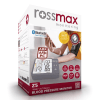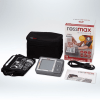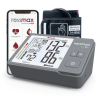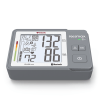Description
Introduction
Blood pressure measurements determined with Z5 are equivalent to those obtained by a trained observer using cuff/stethoscope auscultation method, within the limits prescribed by the American National Standard, Electronic or Automated Sphygmomanometers. This Blood Pressure Monitor complies with the European regulations and bears the CE mark “CE 1639”. The quality of the device has been verified and conforms to the provisions of the EC council directive 93/42/EEC (Medical Device Directive), Annex I essential requirements and applied harmonized standards. EN 1060-1: 1995/A2: 2009 Non-invasive sphygmomanometers – Part 1 – General requirements EN 1060-3: 1997/A2: 2009 Non -invasive sphygmomanometers – Part 3 – Supplementary requirements for electro-mechanical blood pressure measuring systems EN 1060-4: 2004 Non-invasive sphygmomanometers – Part 4: Test Procedures to determine the overall system accuracy of automated non-invasive sphygmomanometers. ISO 81060-2: 2013 Non-invasive sphygmomanometers — Part 2: Clinical investigation of automated measurement type. This blood pressure monitor was designed for long service periods.
PARR(Pulse Arrhythmia) Technology
Prevent the risk of cardio disease and stroke by early detection of atrial fibrillation, premature contraction, tachycardia and bradycardia. Cardiac disorders need medical attention and thus early diagnosis is of paramount importance. The PARR technology detects arrhythmia during regular blood pressure checks without any additional user skills, user interaction and measurement prolongation.
Atrial Fibrillation Detection (AFib)
Atrial fibrillation (also called AFib or AF) is a quivering or irregular heartbeat (arrhythmia) that can lead to blood clots, stroke, heart failure and other heart-related complications. AFib is a serious condition that can occur without any signs or symptoms but can result in life-threatening complications if left untreated.
Premature Contraction Detection (PC)
A premature contraction can originate in your heart’s upper (atria) or lower (ventricles) chambers. With this “extra” beat, a pause usually causes your next normal heartbeat to be more forceful. Premature beats that start in your heart’s upper chambers are premature atrial contractions, or PACs. Those that start in the lower chambers are premature ventricular contractions, or PVCs. Infrequently, premature contractions can be caused by disease or injury to the heart.
Pulse Arrhythmia Detection (ARR)
Once the occurrence of pulse arrhythmia has been detected in the course of your blood pressure measurement, the icon ARR is displayed. In the case, that the found pulse arrhythmia can be specified by the PARR technology, the ARR icon is accompanied by the specifically detected type of arrhythmia, e.g. PC or AFib. Once the kind of found pulse arrhythmia cannot be safely determined by PARR, the device is displaying ARR without any additional pulse arrhythmia type icon. Note: It is strongly recommended, that you consult your physician, if either the ARR icon occurs newly for several times, or, if your ARR is known to your doctor, but the incidence of ARR readings changes over time. This is independent whether the ARR icon is specified by another pulse arrhythmia icon or not. Your doctor will then be able to provide all required medical test and possible therapeutic procedures. The PARR technology is able to detect and display combined pulse arrhythmia findings
Real Fuzzy Measuring Technology
This unit uses the oscillometric method to detect your blood pressure. Before the cuff starts inflating, the device will establish a baseline cuff pressure equivalent to the air pressure. This unit will automatically determine the appropriate inflation level based on pressure oscillations, followed by cuff deflation.
Loose Cuff Detection
If the cuff was applied too loosely, it may cause unreliable measurement results or measurements can fail to start. The “Loose Cuff Detection” can help to determine if the cuff is wrapped snugly enough. A specified icon appears once a “loosen cuff” has been detected during measurement.
Movement Detection
The “Movement Detection” helps reminding the user to remain still and is indicating any adverse body movement during measurement. The specified icon appears once a “body movement” has been detected during and after such a measurement
Hypertension Risk Indication (HRI)
The World Health Organization, classifying blood pressure ranges into 6 grades. This unit is equipped with an innovative blood pressure risk indication, which visually indicates the assumed risk level (optimal / normal / high-normal/ grade1 hypertension / grade 2 hypertension / grade 3 hypertension) of your result, making the meaning of your findings comprehensive.
Accessories
- USB cable
- Latex-Free Patented Universal Cone Cuff
- Instruction Manual
- Zipper bag

